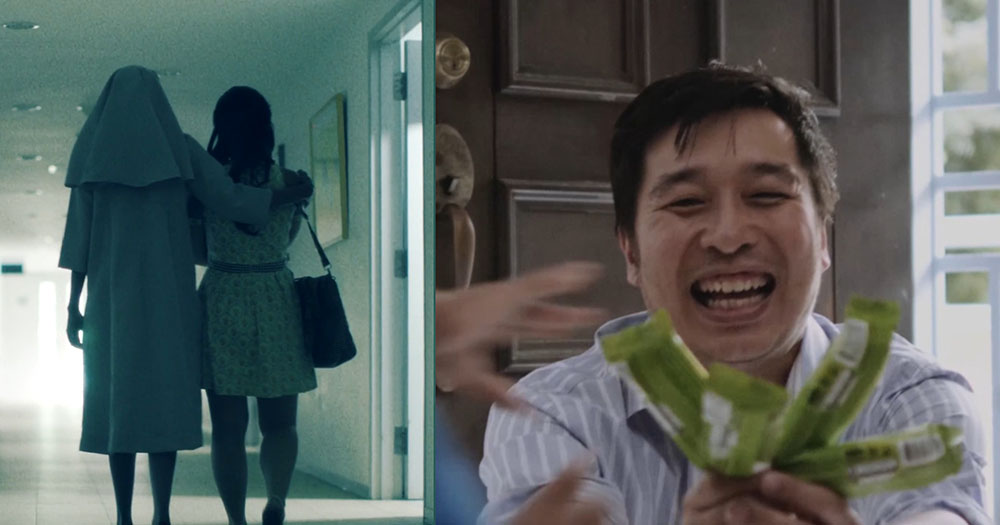When it comes to the 1970s to the 1990s period in Singapore's history, it is an era seen to conjure much nostalgia for a bygone past or a time marked by furious development.
Yet, it is also important to realise that Singapore society textured and fractured with cracks that some fall through.
These segments of our population have daily concerns that were not so much working for a better life, but rather, struggling for a basic level of dignity.
A peek into the daily realities of the marginalised from the 1970s to 1990s
This is the common theme that runs through the second batch of five short films set to be released over the next few weeks as part of the initiative, 15 Shorts.
15 Shorts is a collaboration between the National Volunteer & Philanthropy Centre (NVPC) and Blue3Asia that will produce 15 short films based on stories of 1970s to 1990s Singapore.
It aims to raise awareness on critical social issues.
At roughly 10 minutes each, all five films are locally directed, each by a different director.
Hokkien, Singlish, Malay and English are freely spoken in all of the films, adding to their sense of realism.
Each film also focuses on a specific marginalised segment of Singapore society at that time, but the issues they raise are no less pertinent today.
But perhaps the most compelling thing about the films is that every single one of them is based off a real-life account.
This makes their depiction of their respective subject matter all the more vivid.
All five shorts were shown at a special screening on Nov. 29 and was accompanied by a Q&A session with the directors and the actual people the film were based on.
Convicts on death-row
This is the focus of the film Sister, under the direction of Chai Yee Wei.
It specifically examines the account of Sister Gerard Fernandez, a death row counsellor, and her experience in working with Catherine Tan, one of the two wives of Adrian Lim who was involved in the infamous Toa Payoh child ritual murders in 1981.
Tan was Fernandez's first death-row inmate, having previously been a student of hers at Marymount Vocational Centre.
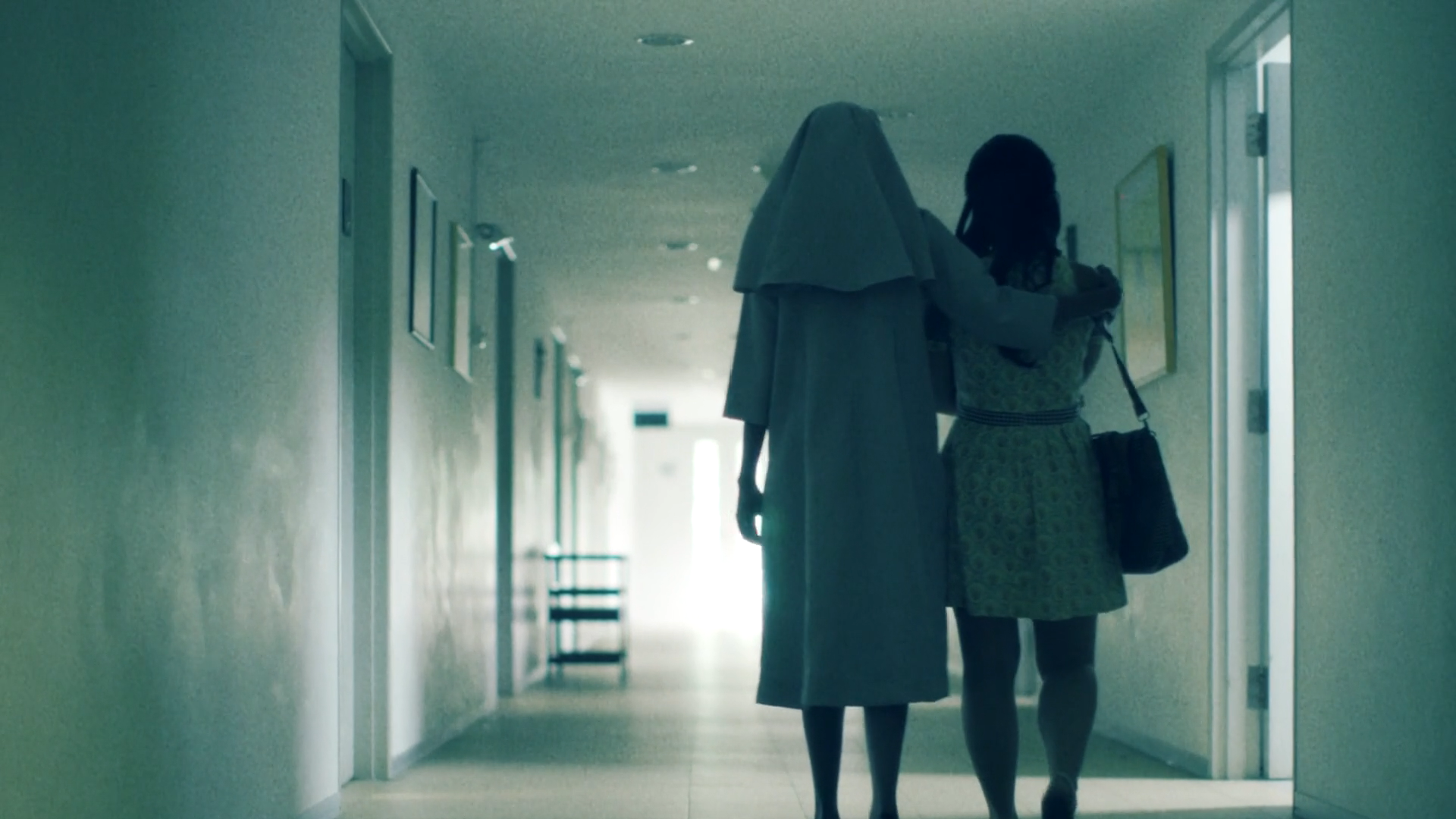 Still from the film "Sister"
Still from the film "Sister"
As reported by The Straits Times, it was a combination of the personal link and the horrific details of the crime, which compelled Fernandez to write to Tan when she first heard about her sentence.
When Tan eventually replied to Fernandez six months later with the statement, "Sister, how could you love me after what I have done?", with the signature "Your black sheep, Catherine", Fernandez sought permission to start seeing her.
Fernandez, who was present for the Q&A session, added: "Nobody knows what happens with death-row inmates."
Fernandez then saw Tan weekly, for almost seven years, until Tan's execution on Nov. 25, 1988.
Some time during these weekly visits, Tan eventually admitted that she had done wrong.
Fernandez said this was the moment that change came "beautifully" to Tan, whereby she came to be at peace prior to her execution.
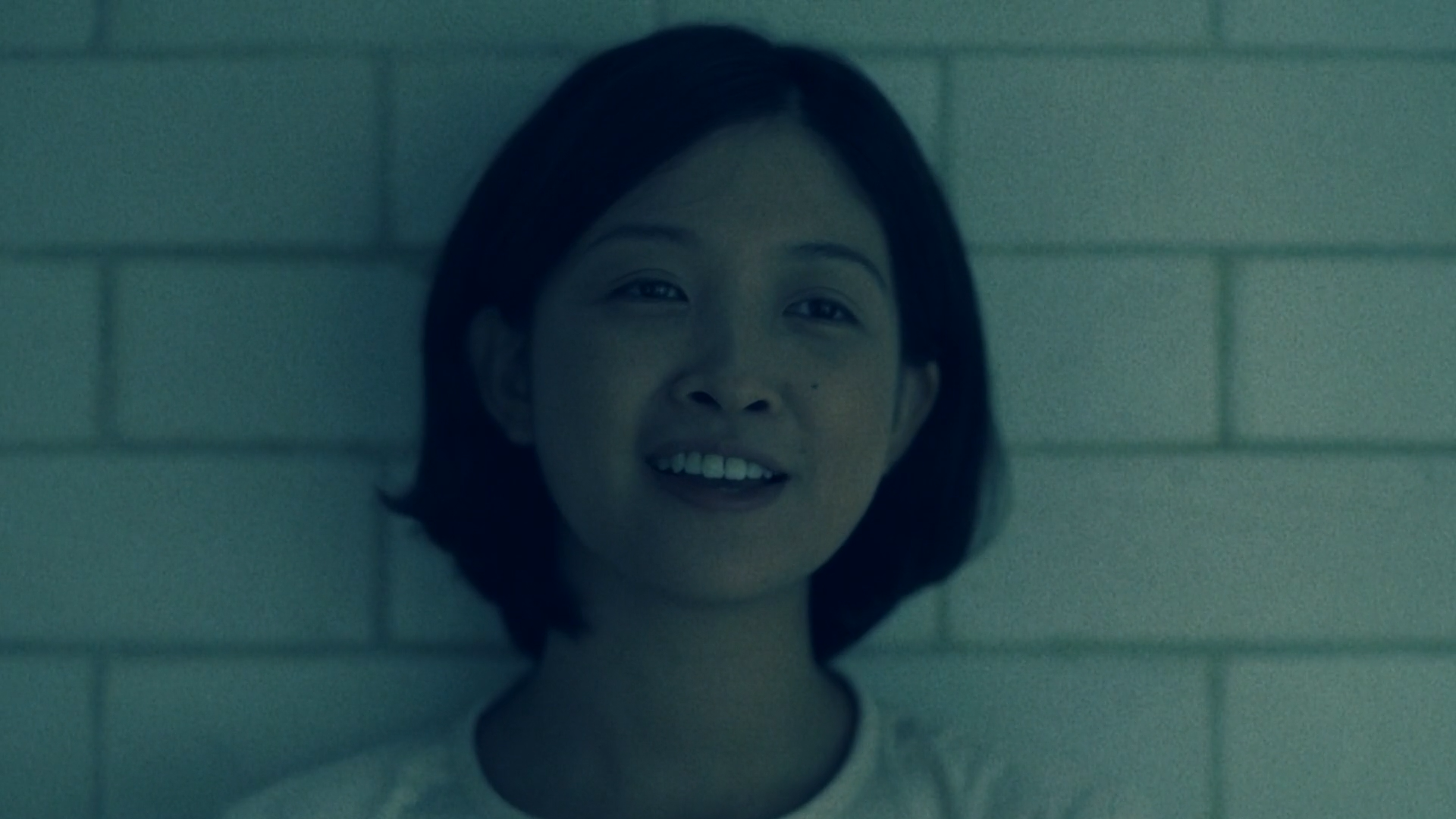 Still from the film "Sister"
Still from the film "Sister"
Tan was not the only death-row convict who underwent such a transformation though.
Fernandez added that such a phenomenon has happened to many death-row inmates across all religions, which has given all the more conviction to her belief that "good triumphs over evil".
AIDS patients
This is the focus of the film Plague, by Boo Junfeng.
It focuses on the work of health worker, Iris Verghese.
Set in the 1980s at the height of the Aids scare and done entirely in one shot, the film focuses on a visit by Verghese to a family, whose eldest son is afraid and ashamed of his condition as an Aids patient.
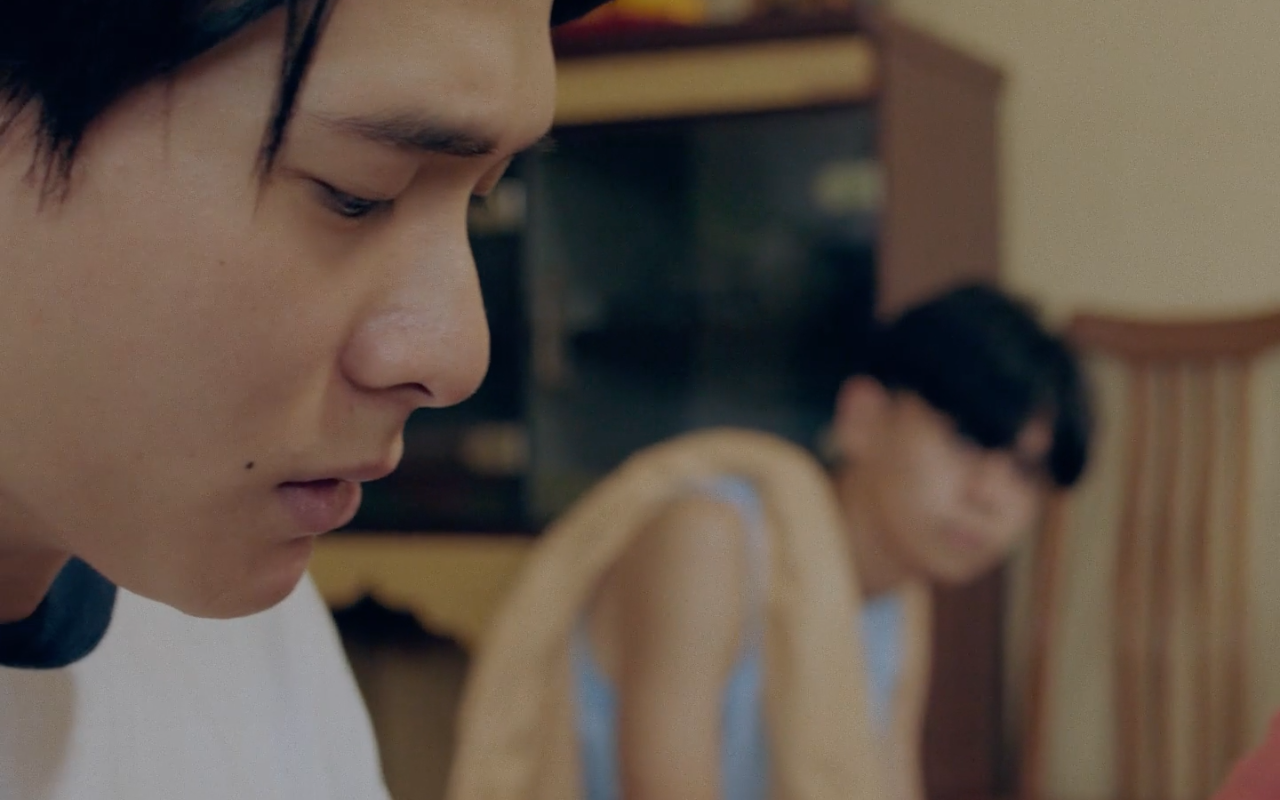 Still from the film "Plague"
Still from the film "Plague"
During the Q&A session, Ash Lim, the screenwriter for the film, said much of Verghese's work at that time focused on making door-to-door visits of patients affected by Aids, who had been shunned by society at large.
Lim said that while better knowledge today means actions, such as sharing cups with an Aids or HIV-positive patient, are not really given a second glance, it is important to understand that Verghese's actions were considered incredible back then, given the paranoia and fear previously surrounding the disease.
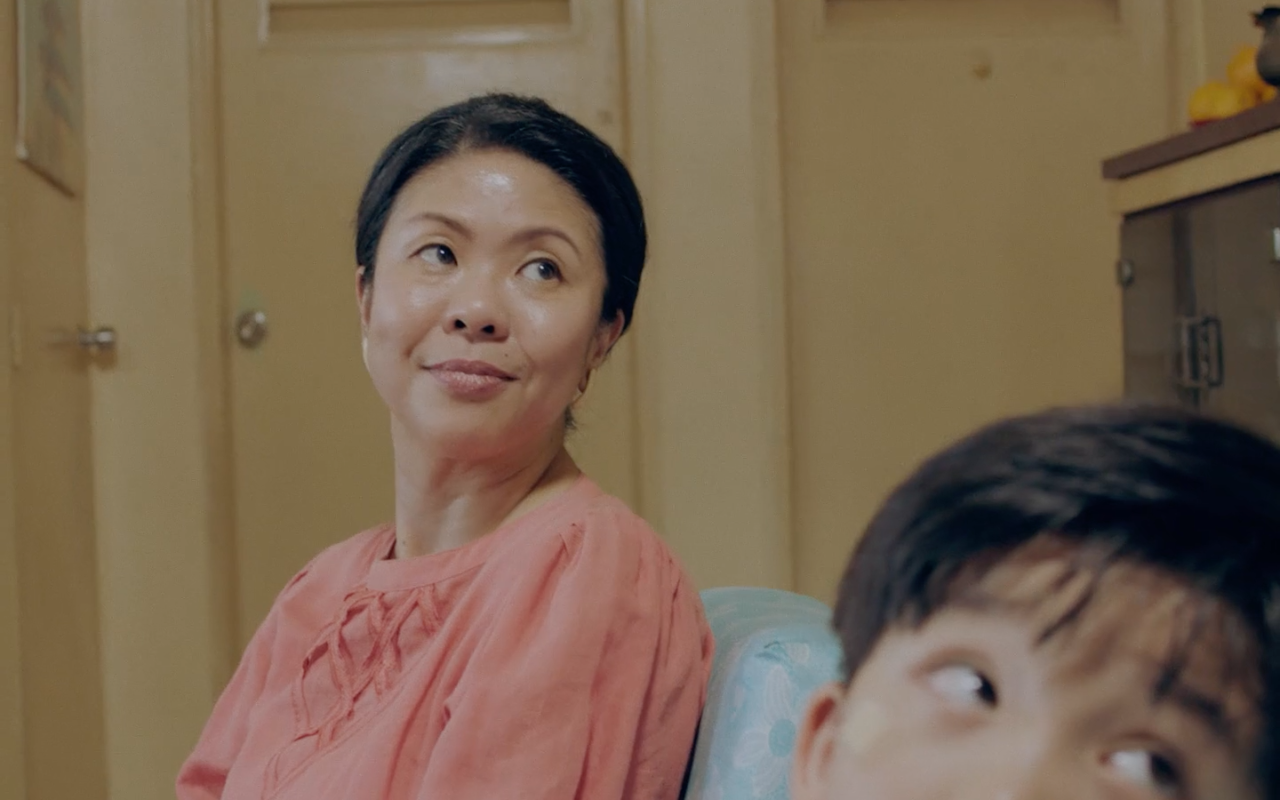 Still from the film "Plague"
Still from the film "Plague"
Verghese would eventually be awarded the Red Ribbon Lifetime Award in 2008 for her tireless work in being a champion of Aids and HIV patients.
The blind
One of the more unique entries out of the five films screened, The T(h)ree Lives, sees a blindfolded actress retrace the steps of Rosie Wong, the blind woman who scaled Mount Kinabalu in 1998, and how she was helped by a stranger known as Pakcik Tubi Moh Salleh to cross the road for five years, while getting to work.
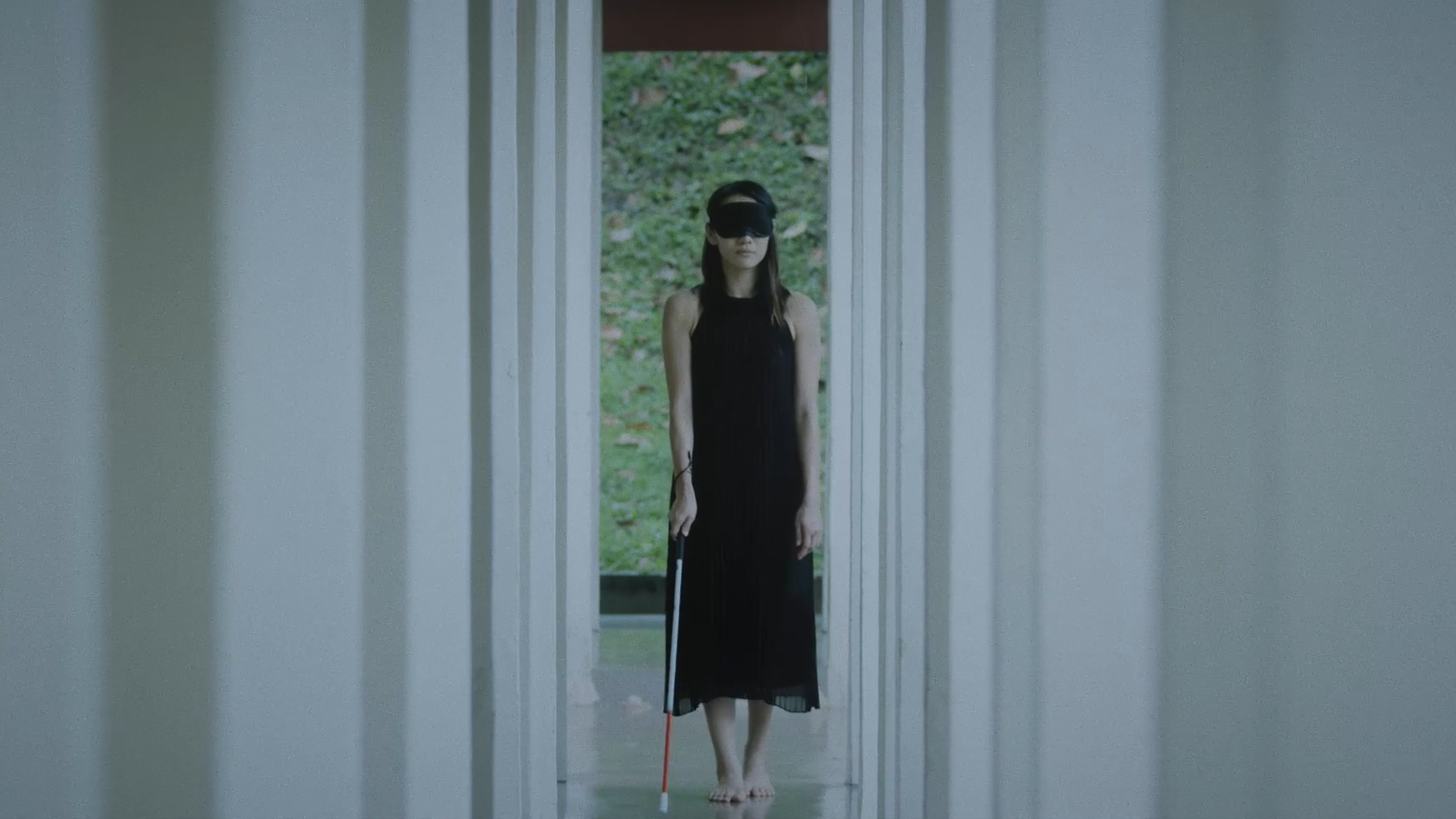 Still from the film "The T(h)ree Lives"
Still from the film "The T(h)ree Lives"
During the Q&A session, Wong related the tremendous value that Tubi's help provided.
She said that blind people are often unable to walk in a straight line, veering either too much to the right or the left.
For his part, director K. Rajagopal said he had designed the film to partly be a social experiment as well -- to see if Singaporeans still embodied the spirit by Tubi.
This means that the people in the film who helped the blindfolded actress on her way are not fellow actors or actresses, but actual people who have no clue they were being filmed.
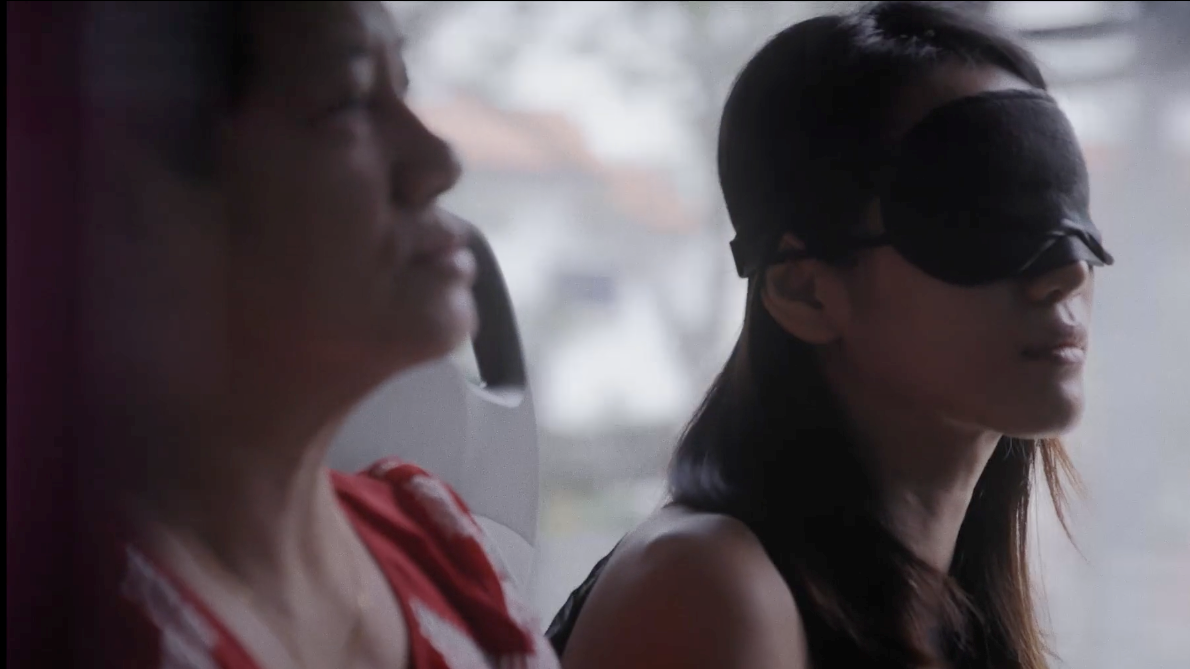 Still from the film "The T(h)ree Lives"
Still from the film "The T(h)ree Lives"
Rajagopal further noted that one of the biggest surprises was that none of the people even asked the actress if she was actually blind or not, which made the film's social experiment outcome a heartening prospect.
Juvenile delinquents
In the film Guilty, director Kee Swee San examines the case of a boy called Don who, at first glance, appears to be unrepentant and impossible to reform.
One person who still believes in him, however, and he is Inspector Chia, the police officer who sees to Don's case.
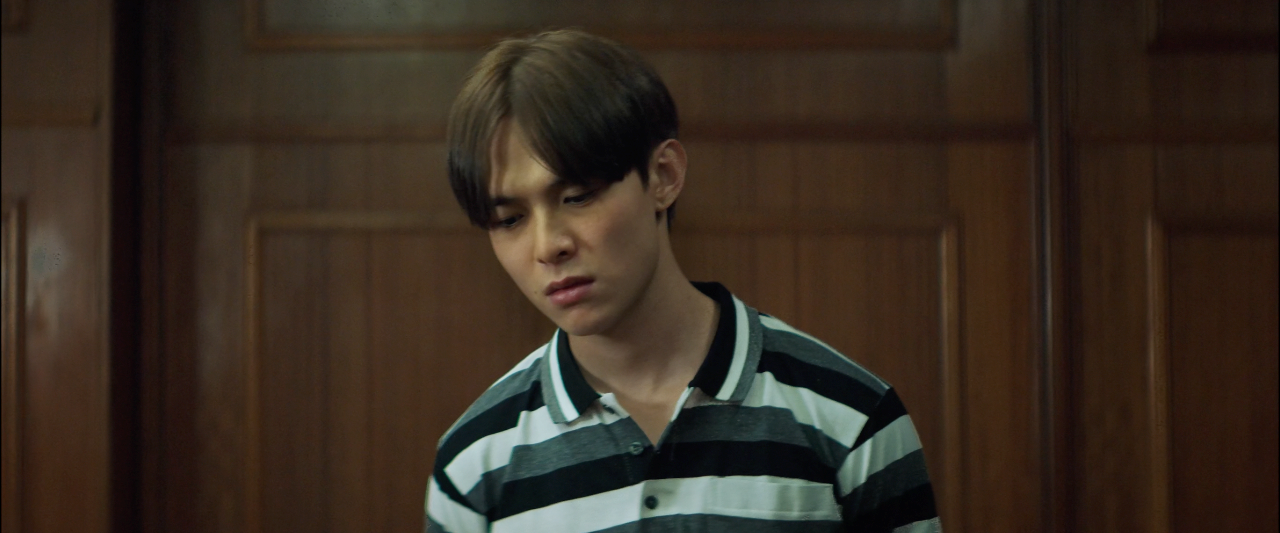 Still from the film "Guilty"
Still from the film "Guilty"
Taken by itself, the film's premise is largely generic -- a dedicated adult who holds out in his belief of an unrepentant child, which is nothing new in film.
This does not detract from the story's impact, given that the account Kee depicts in his film is mostly true, down to the words that Chia uttered in court when Don is about to get sentenced -- that even trash can be recycled.
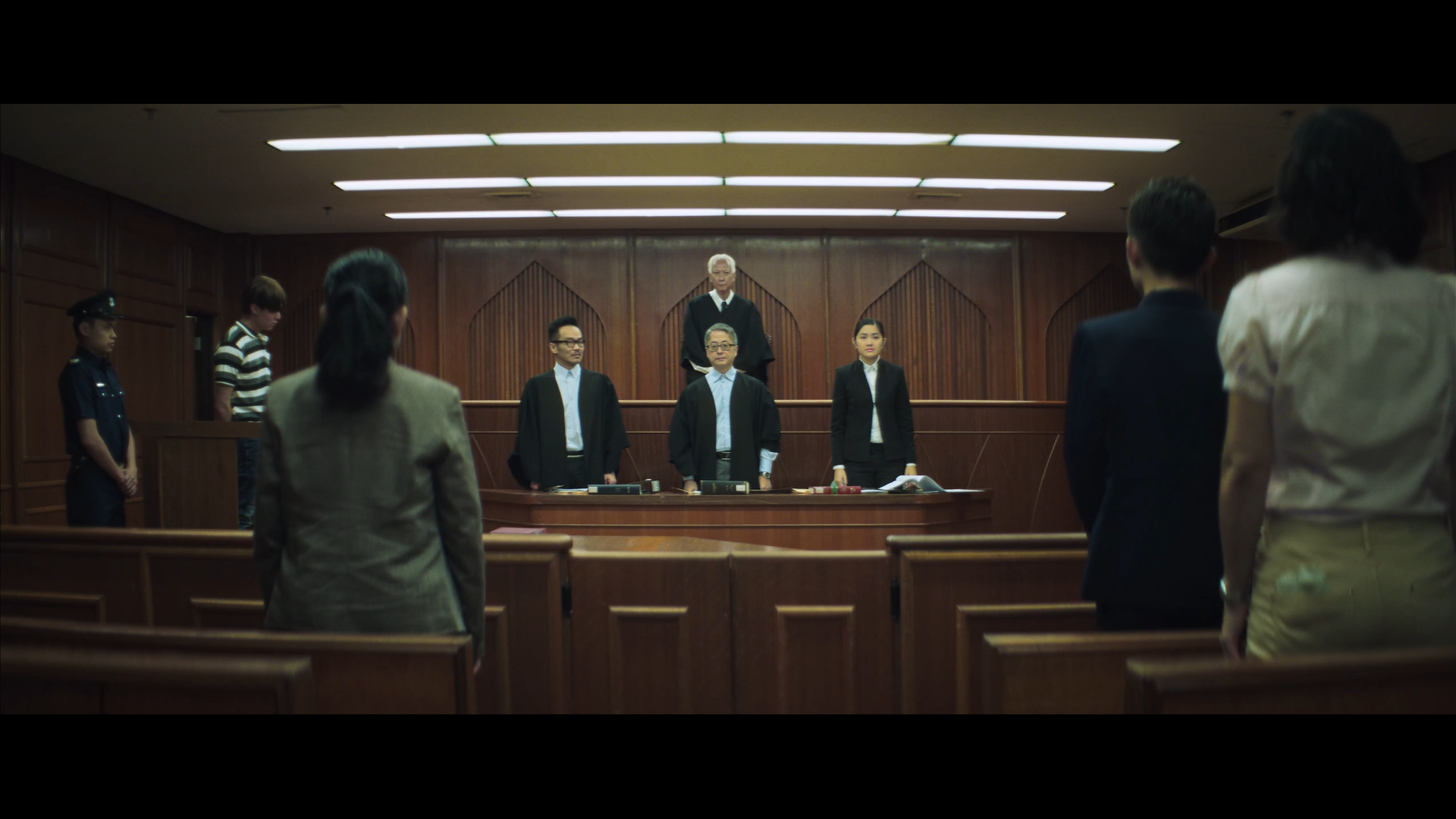 Still from the film "Guilty".
Still from the film "Guilty".
In response to a Q&A session question on why he held an unwavering belief in Don at the, the actual Inspector Chia replied that his belief stemmed from the experience of having his own family and the need to protect them.
The story also has a happy ending in real-life: Don has since become a successful car dealer and father, while Chia has moved on to become a school discipline master.
The low-income family
Directed by Chong Yu Lun, Shanti looks at the help provided by a man known as Kelvin to his security guard, Shanti, and her family after she falls ill and is unable to work.
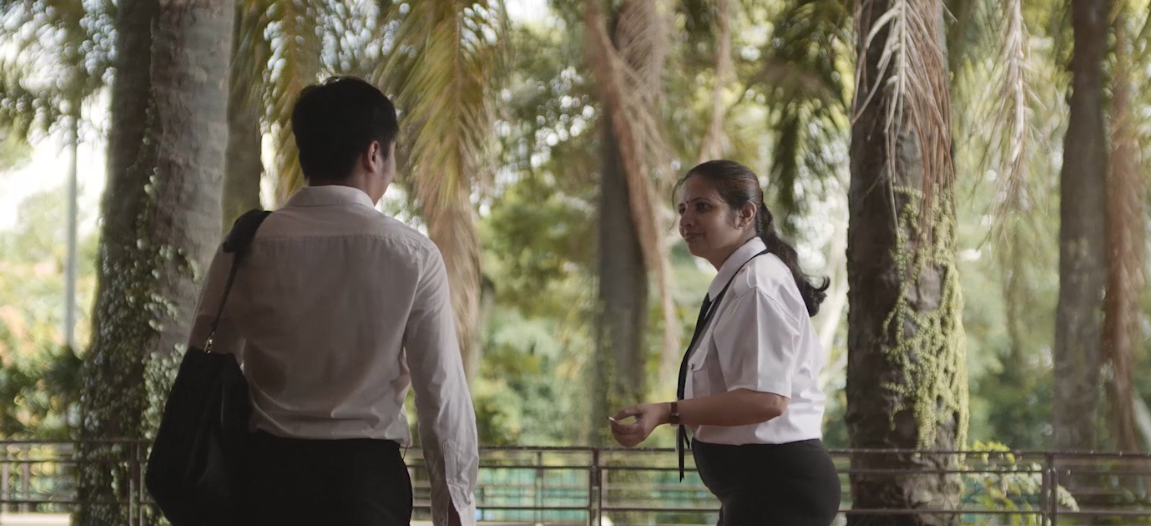 Still from the film "Shanti"
Still from the film "Shanti"
Chong acknowledged during the Q&A session that his film might be the furthest removed from the actual account of how things occurred as he did not manage to get in contact with the original Kelvin, highlighting that all he had for his film was a newspaper article of the incident.
This resulted in Chong imagining Kelvin as a man who hesitated in helping her, on his belief that this would be how most people would normally react to such circumstances.
One aspect of the account that still shocked Chong, however, was when he read that Shanti's death occurred shortly after being told by the doctor that she could be discharged soon.
In the wake of Shanti's death, Kelvin continued providing help to her family.
His deeds earned him the Good Neighbour Award from Sembawang GRC in 1999.
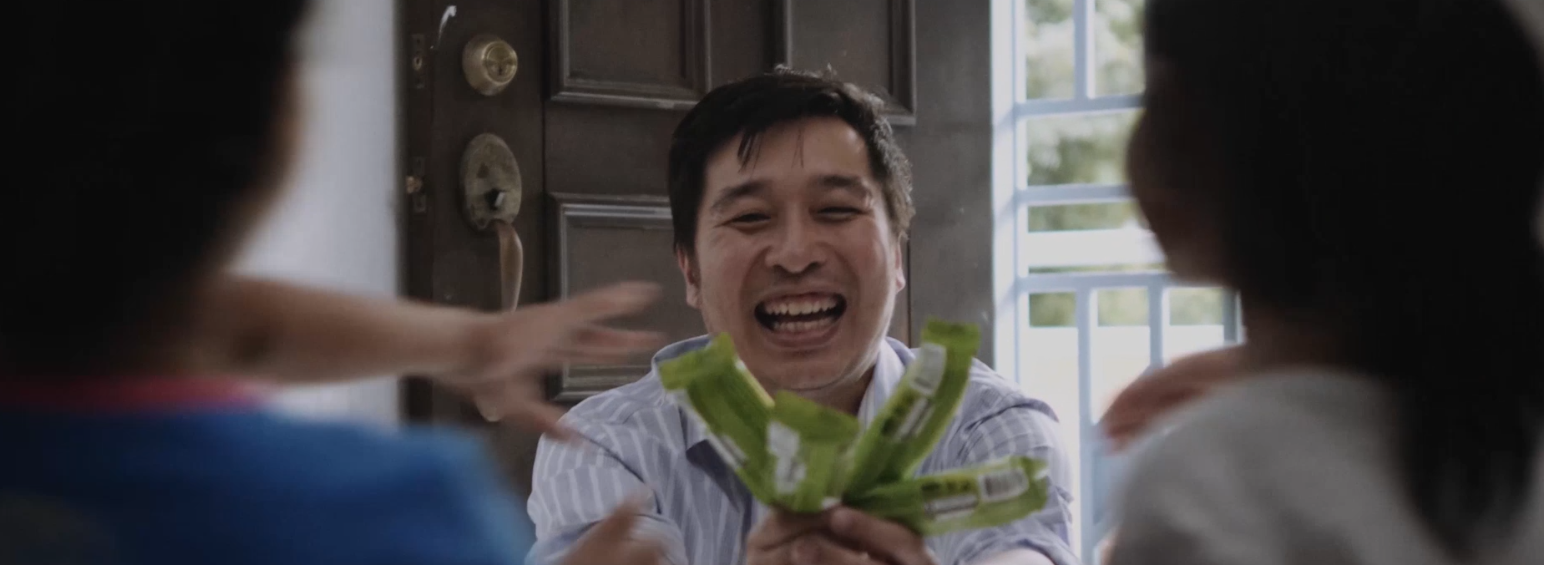 Still from the film "Shanti"
Still from the film "Shanti"
Where to catch the films
Each film will be released for roughly every two weeks to the public, between December 2018 and February 2019.
Here are the release dates for each film:
- Plague -- Nov. 30, 2018
- Shanti -- Dec. 17, 2018
- Guilty -- Jan. 4, 2019
- Sister -- Jan. 15, 2019
- The T(h)ree Lives -- Feb. 1 2019
Some of the platforms that will screen the films include YouTube, Viddsee, Channel 5 and Toggle.
You can watch Plague here:
Each of the films are also dedicated to a specific charity in Singapore and viewers can go to any of the links below to give their support to the charities.
- Plague -- Action for Aids Singapore
- Shanti -- MILK Fund
- Guilty -- Boys' Town
- Sister -- 70x7 (initiative by Prison Fellowship Singapore)
- The T(h)ree Lives -- Singapore Association of the Visually Handicapped
For more information about the films, you can go to the website for 15shorts here.
Top image collage stills from "Sister" and "Shanti"
If you like what you read, follow us on Facebook, Instagram, Twitter and Telegram to get the latest updates.
